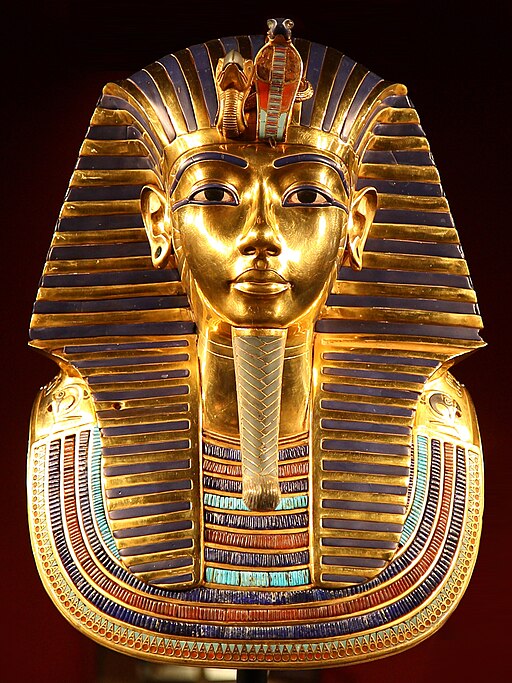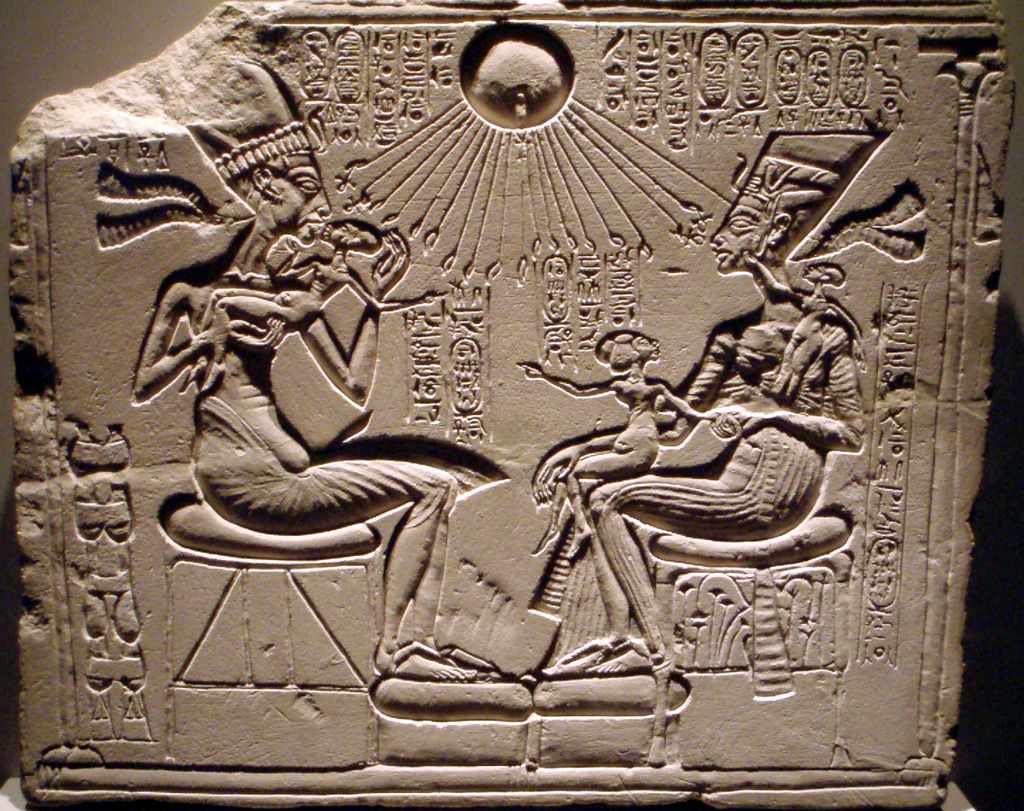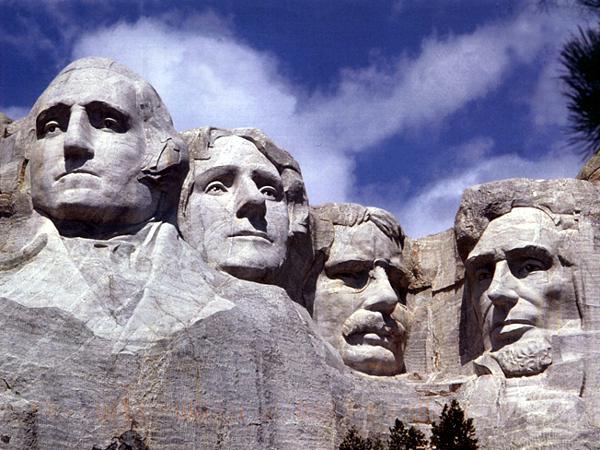
This Buddha is in the Gandharan or Greco-Buddhist style, and the statue shows influence from Ancient Greek art. Gandhara had been part of the Greco-Bactrian Kingdom established by Alexander the Great.
Gandhāra was an ancient Indic kingdom situated in the north-western region of Pakistan, around Peshawar.
The statue has borrowed Greek sculpture characteristics, which influenced Asian sculpture with wavy hair, the defined and rhythmic folds of the robe, and the circular nimbus surrounding the head.
This sculpture also incorporates motifs common for the period; they include:
- an urna on the forehead, representing the third eye, a symbol of divine vision;
- elongated ears, a feature developed by wearing heavy earrings as worn by Indian royalty;
- an ushnisha or topknot, a three-dimensional oval at the top of the head;
Statues of the Buddha were not made until after the 1st century CE. For the first four hundred years after his death, Buddha was represented by symbols alone, such as his: footprint or an empty throne or Bodhi tree.
This statue was made in the 2nd or 3rd century, and although Buddha lived in the 4th century before Christ.
Buddhist Art
Buddhist Art is the artistic practices that are influenced by Buddhism.
Buddhist art originated on the Indian subcontinent following the historical life of Siddhartha Gautama during the 6th to 5th century BCE.
After this period, Buddhist Art evolved through contact and interactions with other cultures and artistic traditions spread throughout Asia and the world.
Buddhist Art includes the depiction of Buddhas, Bodhisattvas, and other notable Buddhist figures, both historical and mythical.
Buddhist Art also includes narrative scenes from the lives of Buddhist figures, mandalas, and other graphic aids for the practice of Buddhism.
The art also depicts objects used in Buddhist traditions, such as vajras, bells, stupas, and Buddhist temples architecture.
Buddha – Greco-Bactrian
- Title: Buddha
- Artist: Unknown
- Dates: 2nd – 3rd Century
- Material: Carved Grey Schist
- Museum: Queensland Art Gallery
Gandhara, the Renaissance Of Buddhism
A Tour of the Queensland Art Gallery
- Li – Chinese Tripod Jar
- “Figure with Snow Falling” by Takahashi Hiroaki
- “Figure with Parasol, Protect against Snow” by Takahashi Hiroaki
- “Under the Jacaranda” by R Godfrey Rivers
- “Bathing Hour” (L’Heure de Bain) by E Phillips Fox
- Buddha
- “Three Dancers at a Dance Class” by Edgar Degas
- “La Fontaine” by Rupert Bunny
- Masterpieces and Historical Objects in the Queensland Art Gallery
Going Back To The Source: Ancient Greeks and Buddhism
Explore Buddhist Art
- Walking Buddha
- Meditating Buddha Shakyamuni
- Mucalinda Sheltering Buddha
- Buddha Protected by Mucalinda
- Buddha performing Twin Miracles at Sravasti
- Buddha
- Seated Buddha from Gandhara
- Bodhisattva Avalokiteshvara – Guanyin
- Seated Bodhisattva Avalokiteshvara – Guanyin
- Luohan – Yixian Glazed Ceramic Sculpture (British Museum)
- Luohan – Yixian Glazed Ceramic Sculpture (Royal Ontario Museum)
- Luohan – Yixian Glazed Ceramic Sculpture (MET)
- Garuda (British Museum)
- Avalokiteshvara – Guanyin (British Museum)
Greco-Bactrian and Indo-Greek Kingdoms
Buddha Quotes
“Do not dwell in the past; do not dream of the future, concentrate the mind on the present moment.”
~~~
“Give, even if you only have a little.”
~~~
“Health is the greatest gift, contentment the greatest wealth, faithfulness the best relationship.”
~~~
“There is no fear for one whose mind is not filled with desires.”
~~~
“Health is the greatest gift, contentment the greatest wealth, faithfulness the best relationship.”
– Buddhist Proverb
~~~
Photo Credit: GM
Popular this Week








 Sponsor your Favorite Page
Sponsor your Favorite Page SEARCH Search for: Search Follow UsJoin – The JOM Membership Program
Sponsor a Masterpiece with YOUR NAME CHOICE for $5
Share this:
- Tweet
